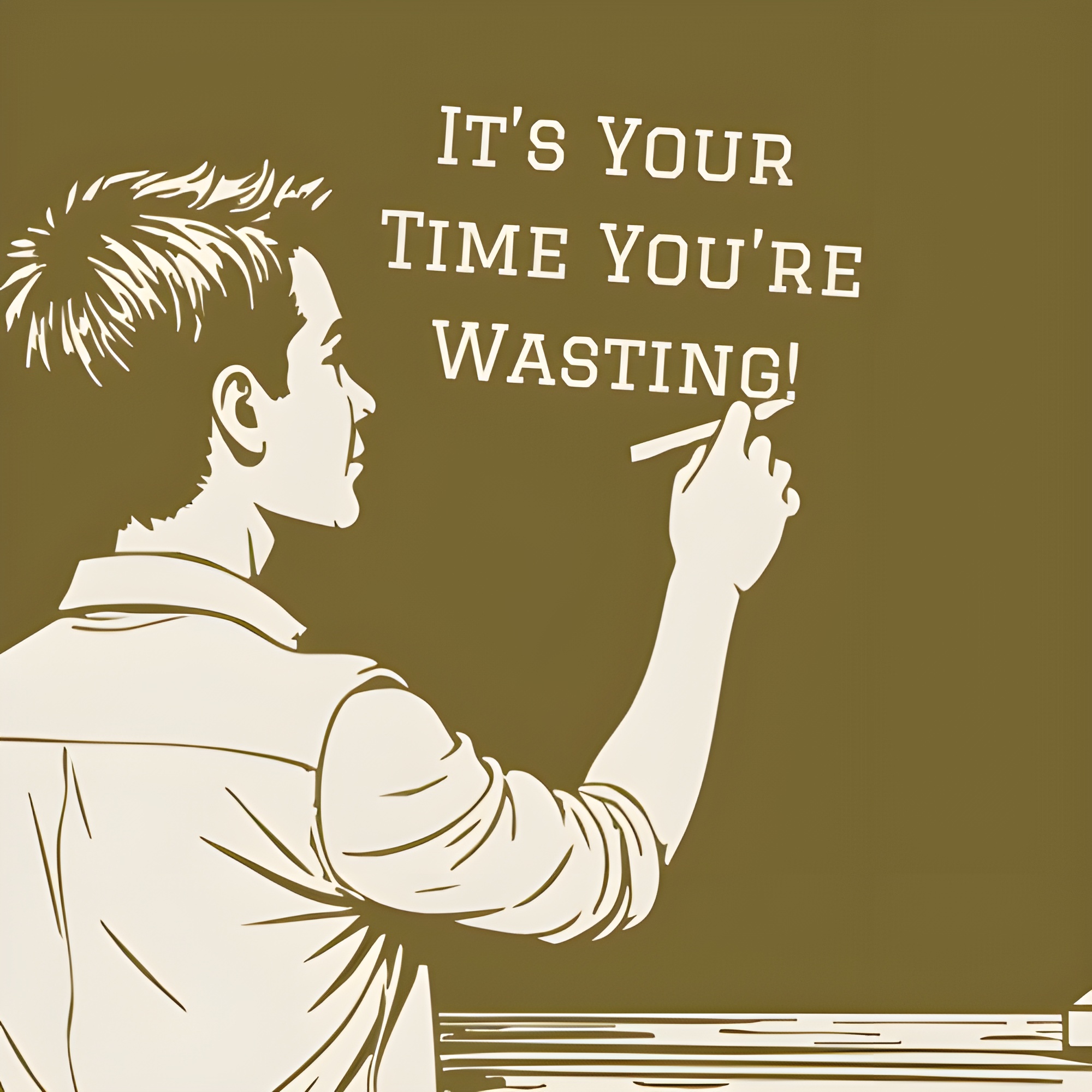It’s Your Time You’re Wasting

It’s Your Time You’re Wasting
Podcast Description
Education chat with David Didau and Martin Robinson
Podcast Insights
Content Themes
Themes revolve around challenges in education including special needs diagnosis, group work techniques, and leadership in schools. For instance, episodes have examined the overdiagnosis crisis in special education, as well as the necessity of group work in pedagogical strategies, and the impact of Covid-19 on schooling, showcasing diverse perspectives on these pressing topics.

Education chat with David Didau and Martin Robinson
Belonging is Ofsted’s latest preoccupation.
In the 2025 framework it sits inside inclusion, now judged in its own right.
Schools feel pressure to demonstrate how they notice and support pupils who
meet friction in the system.
Much policy treats belonging as an emotional climate.
Warmth, smiles and pleasant corridors become the accepted tokens of
attachment.
This flattens a serious idea and overlooks the material pupils use to understand
school life.
Knowledge as the foundation of belonging
Belonging grows from access to shared knowledge: the stories, concepts and
cultural structures that let a community recognise itself.
Language sits inside this larger inheritance. It is the most visible branch of a
deeper stock of ideas.
Without shared knowledge, pupils cannot interpret rules, routines or
expectations.
If belonging becomes a feeling, we lose sight of the material that gives the feeling something to attach to.
Language as the medium of participation
Every encounter at school arrives through words: rules, identity, aspiration,
conflict.
Pupils join the community by gaining control of its linguistic repertoire.
To belong is to understand the meaning
world the school inhabits.
The older conversation
The Civitas
report argues for a renewed commitment to classical liberal education in
the UK:
The aspiration is to help children develop conscience, moral judgement,
aesthetic sensibility, and a sense of belonging to a heritage. These qualities
anchor personal freedom in responsibility and shared humanity
Belonging.docx Classical societies bound citizens through a moral vocabulary and a shared
account of the virtues.
Christianity offered a narrative of creation, fall and redemption that gave
communities long memory. In each case, belonging meant learning the knowledge and language of the tradition.
The Civitas vision of education connects directly to our broader argument:
belonging is not just emotional comfort or inclusion. It is entrance into a shared
world of ideas, language, values and history.
Without that shared knowledge and cultural inheritance, belonging risks
degenerating into a patchwork of mood, sentiment or identity fragments.
Reviving classical liberal education offers a way to rebuild the intellectual and
moral basis of belonging: not as compliance, but as membership in a living
tradition one that gives children more than qualifications: a language, a moral
vocabulary, a sense of home in a community of meaning.
The modern tension. The key question sits quietly behind the framework: belonging to what?
Many schools treat belonging as free floating, detached from any story or stock
of ideas.. This reflects the multicultural mosaic, which prizes openness but offers little
shared meaning.
The result can be a community held together by atmosphere rather than
conviction.
Without shared knowledge, belonging collapses into mood.
Mood does not hold communities together. Common stories, common concepts
and a common language do. When pupils lack the background knowledge to follow curriculum discussions, they drift to the margins. They may feel welcome, but they cannot participate
fully in classroom life.
Initiatives that focus on wellbeing surveys or displays of diversity, but do not
teach the knowledge that unifies pupils, history, literature, civic ideas
produce fragile cohesion. Children sit together but do not share a common
frame for thinking.
Public debate becomes incoherent without shared reference points. When
citizens no longer recog
nise the same historical events, moral concepts or civic
principles, discussion dissolves into competing feelings.
Communities with no common story struggle to integrate newcomers. Without
shared civic knowledge, the constitution, national history, the duties of citizenship
“inclusion” becomes a matter of sentiment rather than
participation..
Societies that retreat from teaching their own traditions often see rising
polarisation. Without a common inheritance, people fall back on subcultures,
identities or moods that cannot be reconciled.
Schools face a clear choice. They can induct pupils into a tradition with coherent
knowledge, a shared story and a demanding moral vocabulary, or they can settle
for a mosaic of disconnected narratives
that offers little common ground.
Language sits at the centre of this decision. A shared linguistic repertoire gives
pupils access to the concepts, stories and virtues that shape the community
they join. Without this, belonging has no anchor and no directi
on.
If Ofsted wants belonging to mean more than mood, it must address the deeper
question: not whether pupils feel at home, but whether they are being given the
knowledge and language that make a home possible.
What do we want students to belong to?

Disclaimer
This podcast’s information is provided for general reference and was obtained from publicly accessible sources. The Podcast Collaborative neither produces nor verifies the content, accuracy, or suitability of this podcast. Views and opinions belong solely to the podcast creators and guests.
For a complete disclaimer, please see our Full Disclaimer on the archive page. The Podcast Collaborative bears no responsibility for the podcast’s themes, language, or overall content. Listener discretion is advised. Read our Terms of Use and Privacy Policy for more details.